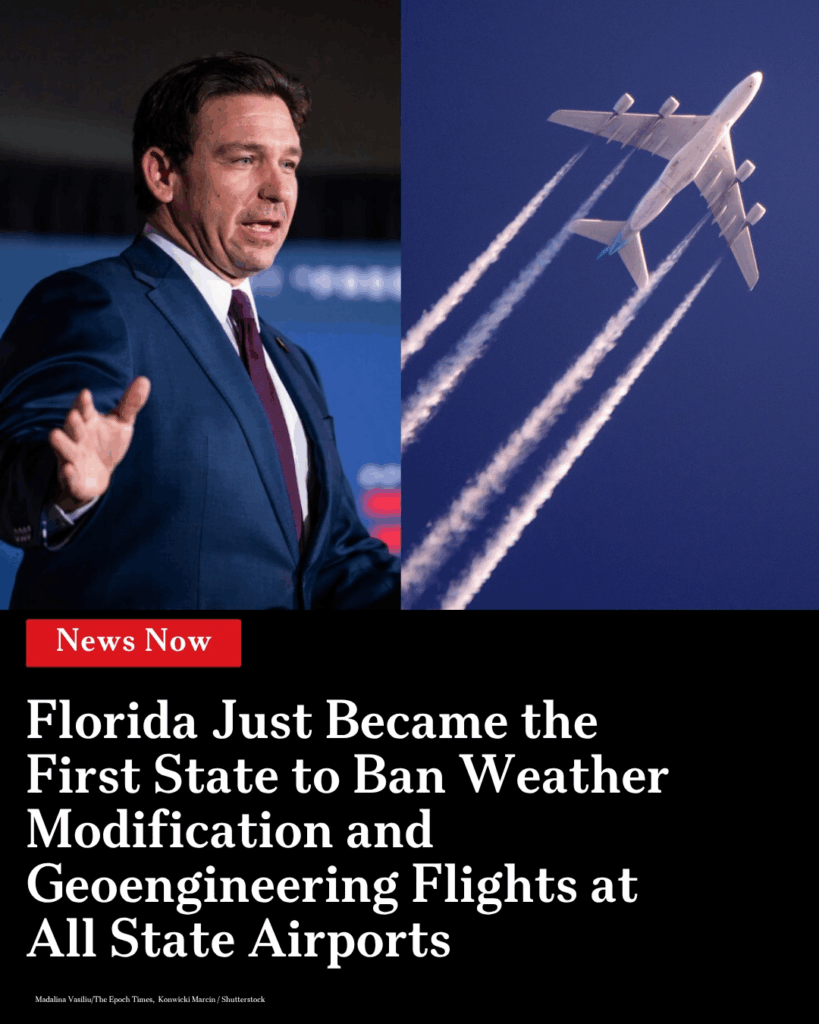4t Florida has enacted HB 477, prohibiting weather modification and geoengineering activities across the state, including restrictions on aircraft releasing substances to affect weather, climate, or sunlight. Public airports must report equipped aircraft monthly, and violations are punishable as a third-degree felony with prison time and fines.

Florida has taken a firm stance against weather modification and geoengineering with the enactment of House Bill 477 (HB 477), which came into effect on July 1, 2025. The law broadly prohibits activities intended to manipulate the weather, climate, or sunlight within the state’s atmosphere, including restrictions on aircraft releasing substances that could influence atmospheric conditions.
HB 477 reflects growing concerns around controversial weather modification techniques that have long sparked debates and conspiracy theories, particularly regarding aircraft contrails. While scientific consensus deems some claims about “chemtrails” unfounded, Florida lawmakers opted to implement strict regulations to safeguard public transparency and environmental integrity.

Under the new law, operators of public airports are required to submit monthly reports on any aircraft equipped for weather modification or geoengineering activities. This reporting mechanism aims to increase oversight and ensure compliance, signaling the state’s commitment to vigilant monitoring of any attempts to alter natural atmospheric processes.
Violations of HB 477 carry serious consequences. Engaging in prohibited weather modification actions is classified as a third-degree felony, which could result in imprisonment and substantial fines. These stringent penalties illustrate Florida’s zero-tolerance approach to unauthorized geoengineering operations, not only protecting the environment but also addressing public apprehensions about covert interventions in the weather.
Environmental experts acknowledge the complexity of weather systems and the challenges in regulating technologies that can impact climate patterns. However, Florida’s legislative move underscores a precautionary principle, emphasizing caution amid uncertainties concerning long-term effects and ethical considerations surrounding geoengineering efforts.
Public reaction to HB 477 is mixed. Supporters praise the law as a necessary step to prevent possible ecological harm and maintain sovereignty over the state’s skies. Opponents, however, argue that the bill may impede scientific research and innovation aimed at combating climate change, particularly in areas like cloud seeding and solar radiation management, which some scientists explore as potential climate solutions.

As states across the U.S. and around the world evaluate their positions on geoengineering, Florida’s HB 477 stands out as one of the more decisive legislative actions targeting weather modification practices. Its emphasis on transparency, enforcement, and strict penalties sets a precedent for other jurisdictions considering similar measures.
In summary, Florida’s House Bill 477 represents a significant policy shift that not only bans weather control attempts without strict oversight but also mandates accountability and severe penalties for violators. As climate challenges intensify, the law highlights the ongoing balancing act between innovation, environmental stewardship, and public trust in emerging technologies affecting the Earth’s atmosphere.

